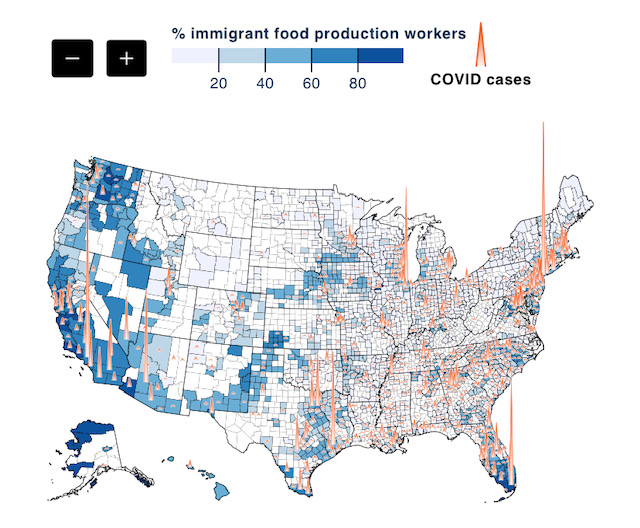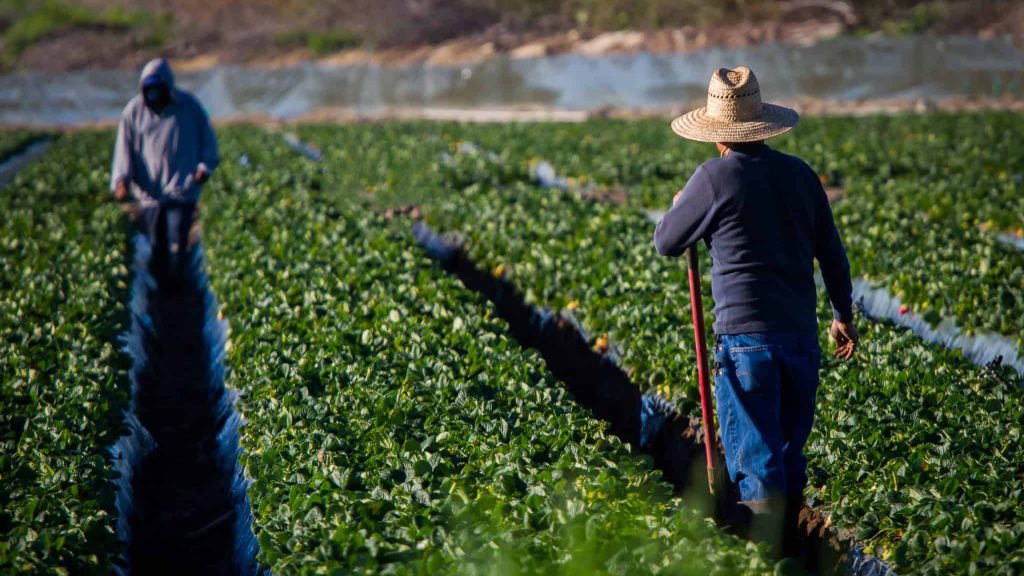The United Farm Workers and the UFW Foundation filed a federal lawsuit this week requesting a temporary restraining order to stop the Trump Administration from cancelling a wage survey that provides crucial information used by the Department of Labor to protect the wage rates of tens of thousands of farmworkers.
On September 30 the USDA canceled the Farm Labor Survey of agricultural employers. It is used by the Department of Labor (DOL) to set the main minimum wage under the H-2A agricultural guestworker program. USDA said it will not collect data in October for the past two quarters of the 2020 fiscal year. Nor will it issue the annual Farm Labor Report ordinarily published in November.
In the absence of the USDA wage survey, DOL will not have the survey results that, under the H-2A program regulations, it uses to set the “adverse effect wage rates” for each state in 2021.
According to Farmworker Justice, co-counsel for the plaintiffs – is that the result will be massive wage cuts to both U.S. farmworkers and foreign guest workers at H-2A program employers in 2021. The H-2A program, which has been expanding rapidly, approved over 250,000 jobs in the fiscal year 2019 and will likely approve more in 2020.
New England farmers lean heavily on immigrant farm labor to keep their operations moving. More often than not, immigrants are the ones in the fields, setting the pace for the rest of the crew, planting and hauling in loads of fruits and vegetables, season after season.
New Hampshire has a strong agriculture industry. Farmers make nearly $20 million from crops including apples and corn.
The immigrant-led, worker-owned cooperative farm, Riquezas del Campo farm on the Northampton-Hatfiled line, provide quality, organically grown produce to those in the area who may have not been able to afford it.
Riquezas del Campo is licensed by the state’s Healthy Incentives Program. Under this licensing, people using SNAP benefits (food stamps) receive a matching incentive to their SNAP accounts for each dollar spent at eligible vendors.
“We’re so happy to be able to help the people who need it the most,” Lorena Moreno, a founding member of the Riquezas del Campo farm told the Daily Hampshire Gazette. “That’s our main goal — to get our products to people who cannot afford to go to the organic store.”
A Center for Public Integrity county-by-county analysis found that of the nearly 2,000 farm workers across Hillsborough, Merrimack, Strafford and Rockingham counties are immigrants.
The national analysis was drawn from Census Bureau survey data collected by IPUMS USA at the University of Minnesota.

Immigrants, many Latinos, risk their health as essential workers who grow, harvest, and process food for Americans — while many of their families are blocked from the most basic COVID-19 financial support, including federal stimulus checks, other taxpayers were eligible to receive.
A reduction of wages would make it all, but impossible for them to survive let alone make ends meet. The inability to provide for their families would reduce the number of immigrants who make the trek to New England looking for work. That’s a problem shared with farming operations that depend on immigrants to keep their businesses operating due to the lack of local help.
“We used to work from the day we got out of school until the day we went back,” says Chris Clegg, fifth-generation owner of Four Town Farm on the border of Massachusetts and Rhode Island. He reminisces about being a high schooler and working on a farm during the summer months. “That just doesn’t happen anymore. They’re good kids; I just can’t rely on them for the season.”
Immigrants arrive on New England farms in one of several ways. They are either citizens or green card holders, undocumented or “ambiguously documented,” or as part of the federal H-2A visa program.
Farmworker Justice argues the immediate suspension of the USDA Farm Labor Survey will likely mean that the applicable H-2A wage rates for most workers will not be a measure of market-rate wages. Instead, most farmworkers will be offered the state or federal minimum wage, which is substantially lower in all states.
Cancellation of the Farm Labor Survey, which has been conducted for more than 100 years, amounted to “an end run around changing the H-2A regulations in a cruel effort to slash farmworkers’ wages,” said Bruce Goldstein, head of Farmworker Justice.
Asked why the USDA canceled the survey, a spokeswoman said, “USDA has determined the public can access other data points for the data collected in the Agricultural Labor Survey.”
(Cover photo credit: Farmworker Justice




